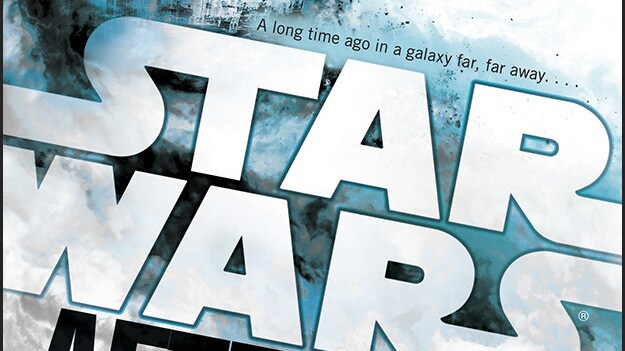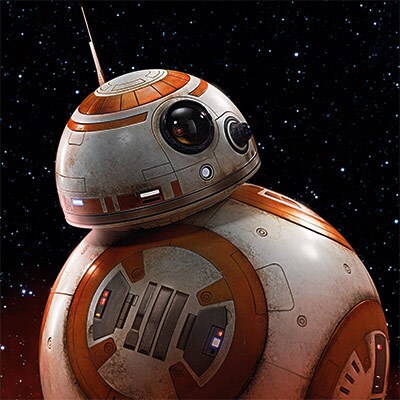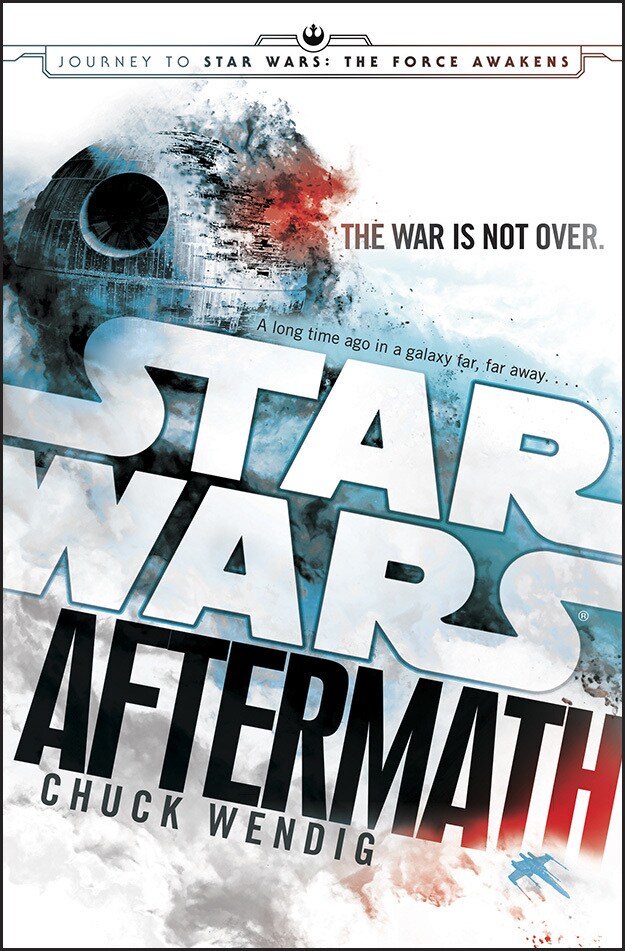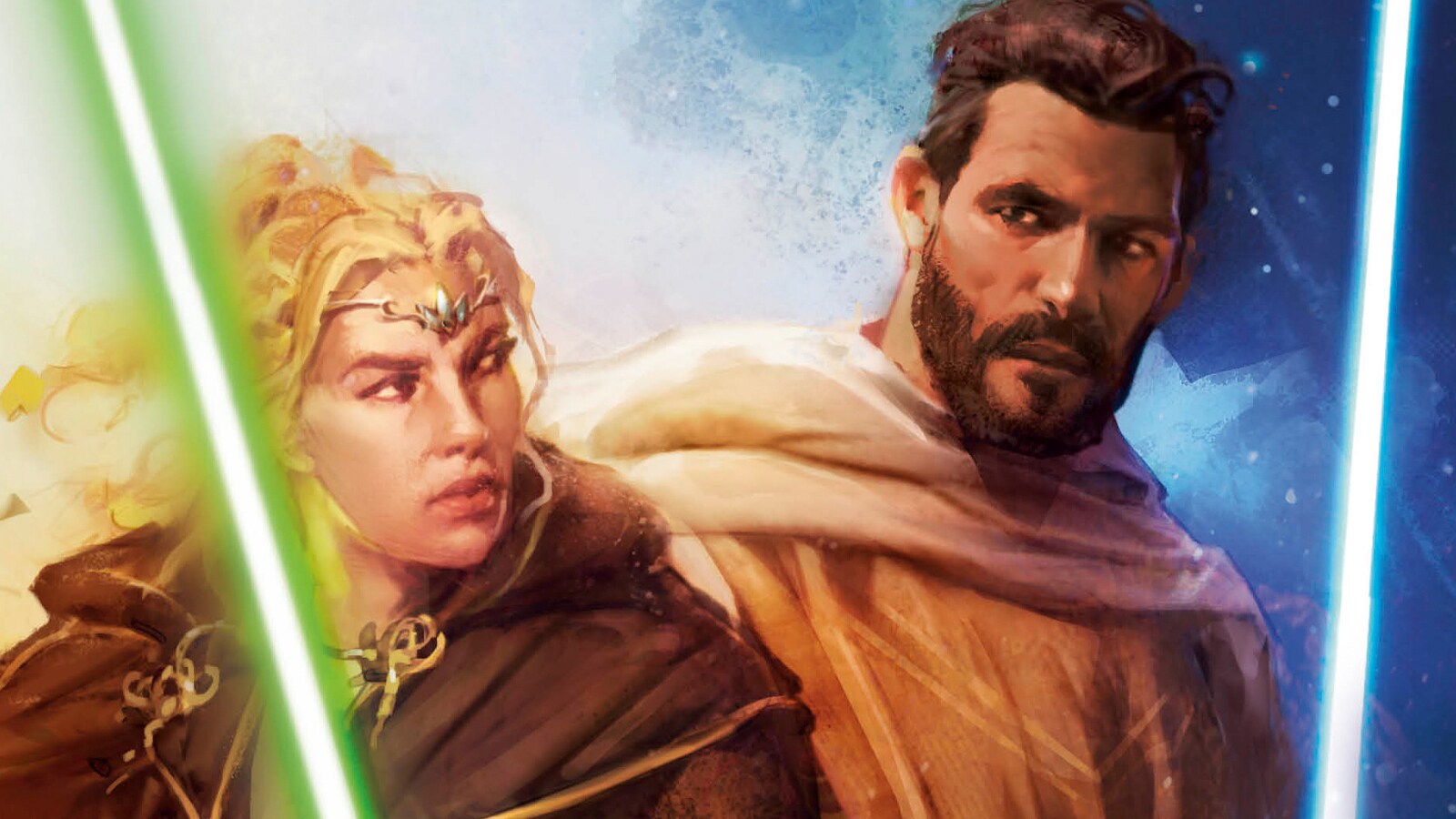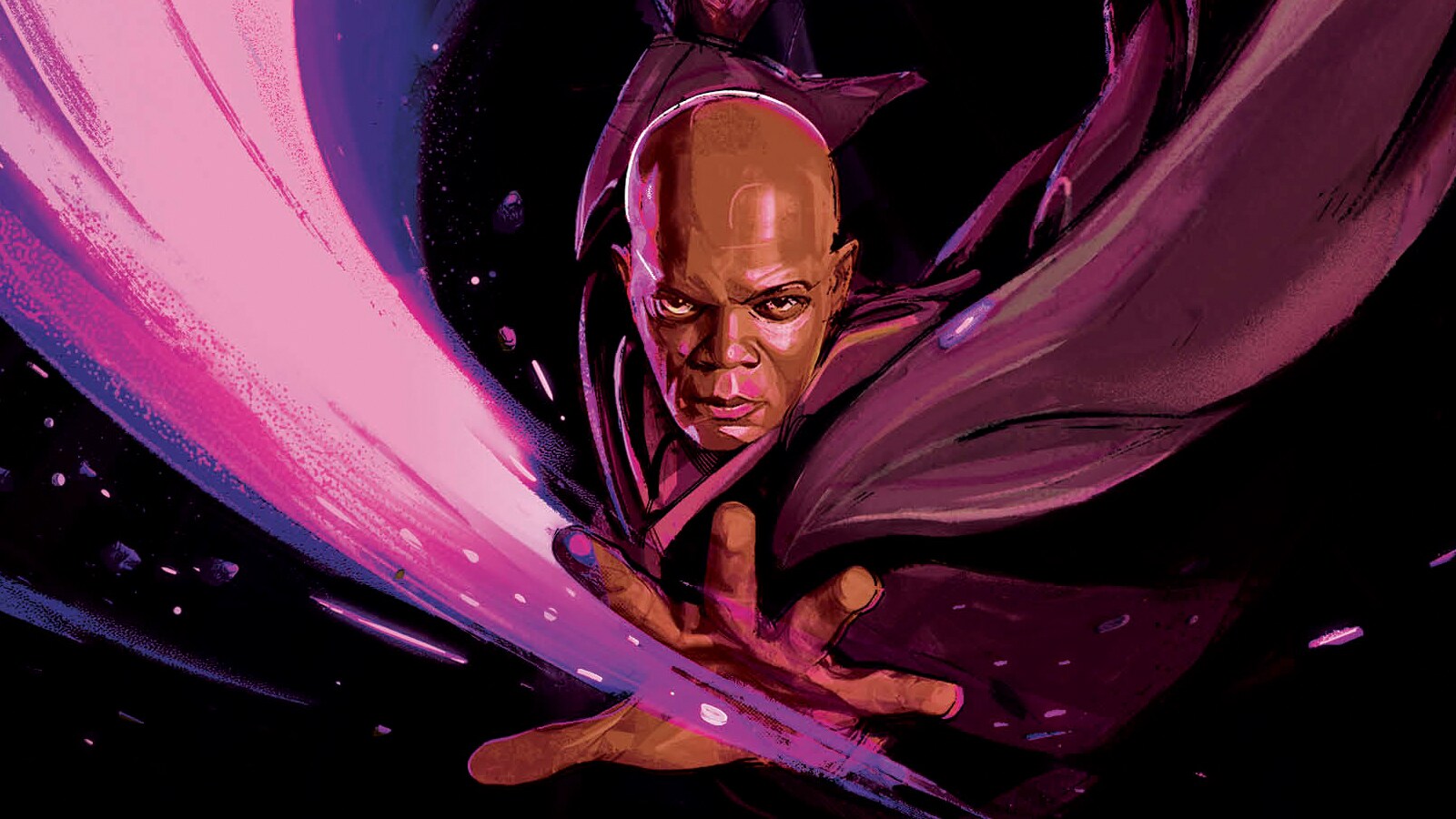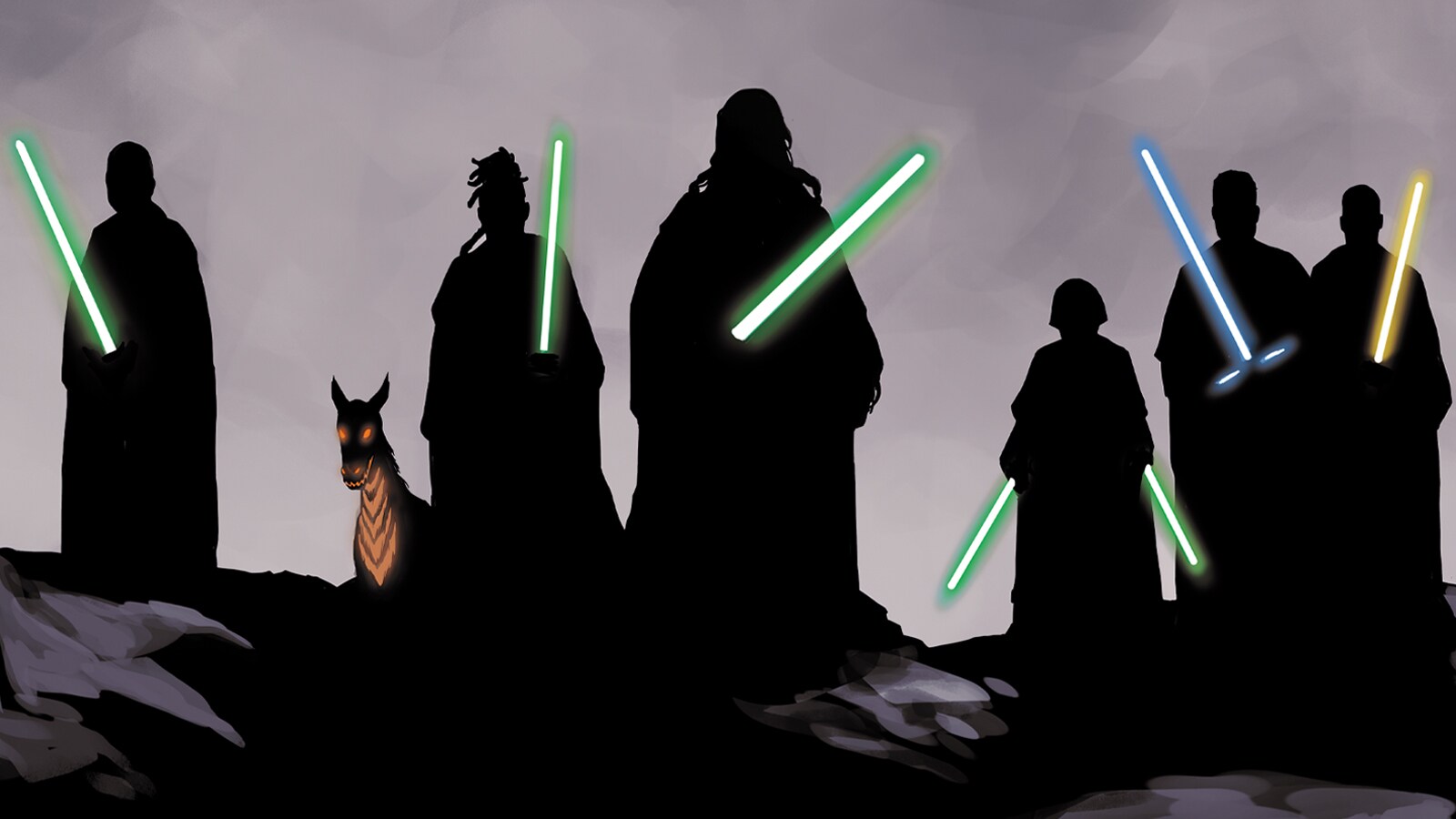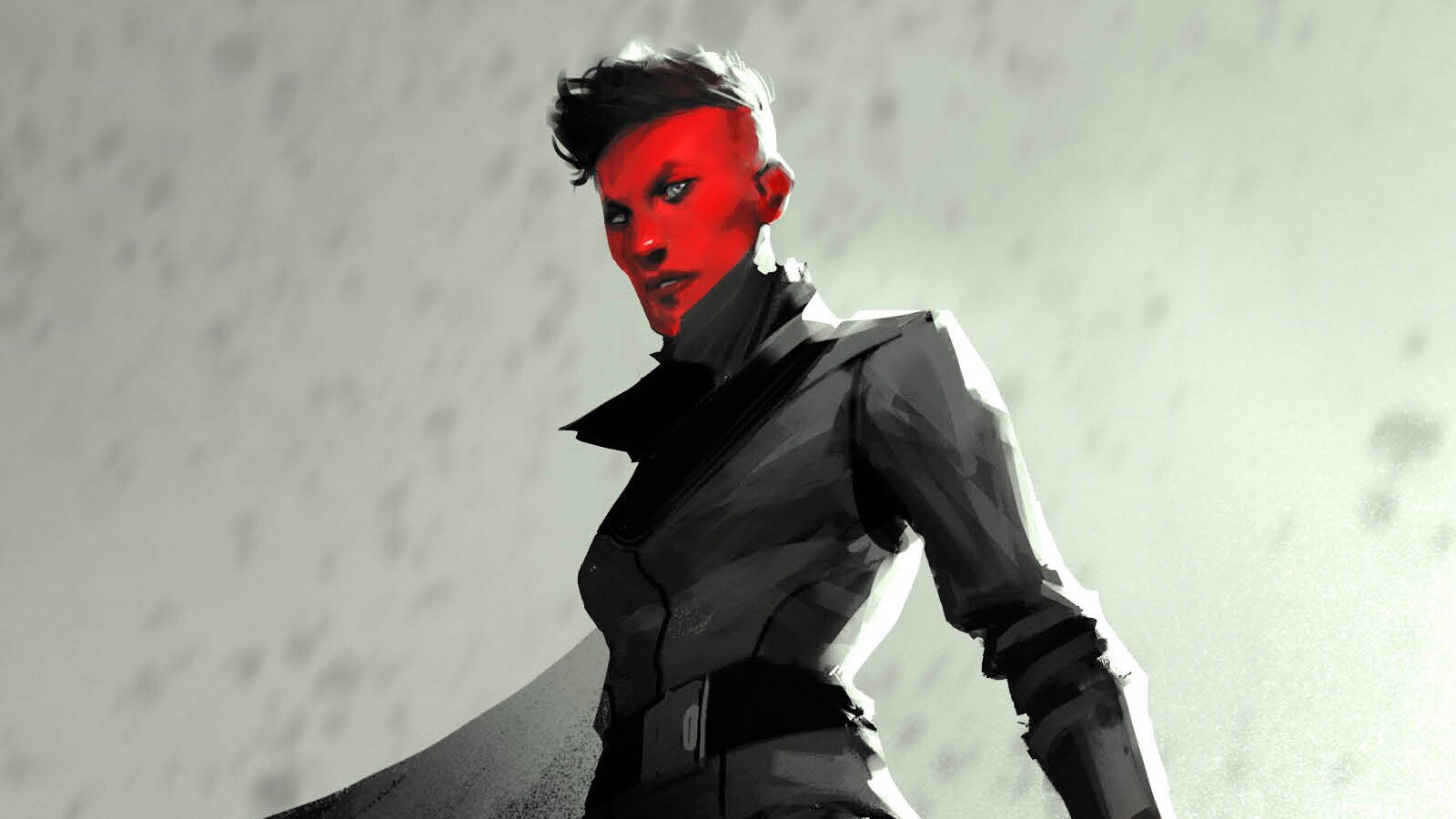We all remember the last time we saw Luke, Han, Leia, and Chewbacca together. There were fireworks. There was celebration. The second Death Star had just been obliterated, the Emperor was dead, and Darth Vader was no more. But revolutions come with a price.
There's over 30 years of space between Star Wars: Return of the Jedi and Star Wars: The Force Awakens, and that's enough time for a lot of conflict. And a new trilogy of books to tell us what happened.
The first installment, Star Wars: Aftermath by Chuck Wendig (Blackbird, The Blue Blazes), releases September 4 and begins immediately after the victory celebration on Coruscant seen at the end of Return of the Jedi. As it turns out, the fight for freedom wasn't truly over. Check out the exciting excerpt below.
PRELUDE:
“Today is a day of celebration. We have triumphed over villainy and oppression and have given our Alliance -- and the galaxy beyond it -- a chance to breathe and cheer for the progress in reclaiming our freedom from an Empire that robbed us of it. We have reports from Commander Skywalker that Emperor Palpatine is dead, and his enforcer, Darth Vader, with him.
But though we may celebrate, we should not consider this our time to rest. We struck a major blow against the Empire, and now will be the time to seize on the opening we have created. The Empire’s weapon may be destroyed, but the Empire itself lives on. Its oppressive hand closes around the throats of good, free-thinking people across the galaxy, from the Coruscant Core to the farthest systems in the Outer Rim. We must remember that our fight continues. Our rebellion is over. But the war . . . the war is just beginning.” —Admiral Ackbar
CORUSCANT
Then:
Monument Plaza.
Chains rattle as they lash the neck of Emperor Palpatine. Ropes follow suit—lassos looping around the statue’s middle. The mad cheers of the crowd as they pull, and pull, and pull. Disappointed groans as the stone fixture refuses to budge. But then someone whips the chains around the back ends of a couple of heavy-gauge speeders, and then engines warble and hum to life—the speeders gun it and again the crowd pulls—
The sound like a giant bone breaking.
A fracture appears at the base of the statue.
More cheering. Yelling. And—
Applause as it comes crashing down.
The head of the statue snaps off, goes rolling and crashing into a fountain. Dark water splashes. The crowd laughs.
And then: The whooping of klaxons. Red lights strobe. Three airspeeders swoop down from the traffic lanes above—Imperial police. Red-and- black helmets. The glow of their lights reflected back in their helmets.
There comes no warning. No demand to stand down.
The laser cannons at the fore of each airspeeder open fire. Red bolts sear the air. The crowd is cut apart. Bodies dropped and stitched with fire.
But still, those gathered are not cowed. They are no longer a crowd. Now they are a mob. They start picking up hunks of the Palpatine statue and lobbing them up at the airspeeders. One of the speeders swings to the side to avoid an incoming chunk of stone—and it bumps another speeder, interrupting its fire. Coruscanti citizens climb up the stone spire behind both speeders—a spire on which are written the Imperial values of order, control, and the rule of law—and begin jumping onto the police cruisers. One helmeted cop is flung from his vehicle. The other crawls out onto the hood of his speeder, opening fire with a pair of blasters—just as a hunk of stone cracks him in the helmet, knocking him to the ground.
The other two airspeeders lift higher and keep firing.
Screams and fire and smoke.
Two of those gathered—a father and son, Rorak and Jak—quick-duck behind the collapsed statue. The sounds of the battle unfolding right here in Monument Plaza don’t end. In the distance, the sound of more fighting, a plume of flames, flashes of blaster fire. A billboard high up in the sky among the traffic lanes suddenly goes to static.
The boy is young, only twelve standard years, not old enough to fight. Not yet. He looks to his father with pleading eyes. Over the din he yells: “But the battle station was destroyed, Dad! The battle is over!” They just watched it only an hour before. The supposed end of the Empire. The start of something better.
The confusion in the boy’s shining eyes is clear: He doesn’t understand what’s happening.
But Rorak does. He’s heard tales of the Clone Wars—tales spoken by his own father. He knows how war goes. It’s not many wars, but just one, drawn out again and again, cut up into slices so it seems more manageable.
For a long time he’s told his son not the truth but the idealized hope: One day the Empire will fall and things will be different for when you have children. And that may still come to pass. But now a stronger, sharper truth is required: “Jak—the battle isn’t over. The battle is just starting.”
He holds his son close.
Then he puts a hunk of statue in the boy’s hand.
And he picks one up himself.
Chapter One
Now:
Starlines streak across the bright black.
A ship drops out of hyperspace: a little Starhopper. A one-person ship. Favored by many of the less desirable factions out here in the Outer Rim—the pirates, the bookies, the bounty hunters and those with bounties on their heads to hunt. This particular ship has seen action: plasma scarring across the wings and up its tail fins; a crumpled dent in the front end as if it was kicked by an AT-AT Imperial walker. All the better for the ship to blend in. Ahead: the planet Akiva. A small planet—from here, striations of brown and green. Thick white clouds swirling over its surface.
The pilot, Wedge Antilles, once Red Leader and now—well, now something else, a role without a formal title, as yet, because things are so new, so different, so wildly up in the air—sits there and takes a moment.
It’s nice up here. Quiet.
No TIE fighters. No blasts across the bow of his X-wing. No X-wing, in fact, and though he loves flying one, it’s nice to be out. No Death Star—and here, Wedge shudders, because he helped take down two of those things. Some days that fills him with pride. Other days it’s something else, something worse. Like he’s drawn back to it. The fight still going on all around him. But that isn’t today.
Today, it’s quiet.
Wedge likes the quiet.
He pulls up his datapad. Scrolls through the list with a tap of the button on the side. (He has to hit it a few extra times just to get it to go—if there’s one thing he looks forward to when all this is over, it’s that maybe they’ll start to get new tech. Somehow, this datapad had actual sand in it, and that’s why the buttons stick.) The list of planets clicks past.
He’s been to, let’s see, five so far. Florrum. Ryloth. Hinari. Abafar. Raydonia. This planet, Akiva, is the sixth on the list of many, too many.
It was his idea, this run. Somehow, the remaining factions of the Empire are still fueling their war effort even months after the destruction of their second battle station. Wedge had the notion that they must’ve moved out to the Outer Rim—study your history and it’s easy to see that the seeds of the Empire grew first out here, away from the Core systems, away from the prying eyes of the Republic.
Wedge told Ackbar, Mon Mothma: “Could be that’s where they are again. Hiding out there.” Ackbar said that it made some sense. After all, didn’t Mustafar hold some importance to the Imperial leadership? Rumors said that’s where Vader took some of the Jedi long ago. Torturing them for information before their execution.
And now Vader’s gone. Palpatine, too.
Almost there, Wedge thinks—once they find the supply lines that are bolstering the Imperials, he’ll feel a whole lot better.
He pulls up the comm. Tries to open a channel to command and—
Nothing.
Maybe it’s broken. It’s an old ship.
Wedge fidgets at his side, pulls up the personal comm relay that hangs there at his belt—he taps the side of it, tries to get a signal.
Once more: nothing.
His heart drops into his belly. Feels a moment like he’s falling. Because what all of this adds up to is:
The signal’s blocked. Some of the criminal syndicates still operating out here have technology to do that locally—but in the space above the planet, no, no way. Only one group has that tech.
His jaw tightens. The bad feeling in the well of his gut is swiftly justified, as ahead a Star Destroyer punctures space like a knife-tip as it drops out of hyperspace. Wedge fires up the engines. I have to get out of here.
A second Star Destroyer slides in next to the first.
The panels across the Starhopper’s dash begin blinking red.
They see him. What to do?
What did Han always say? Just fly casual. The ship is disguised as it is for a reason: It looks like it could belong to any two-bit smuggler out here on the fringe. Akiva’s a hotbed of criminal activity. Corrupt satrap governors. Various syndicates competing for resources and opportunities. A well-known black market—once, decades ago, the Trade Federation had a droid manufacturing facility here. Which means, if you want some off-the- books droid, you can come here to buy one. The Rebel Alliance procured many of its droids right here, as a matter of fact.
New dilemma, though: What now?
Fly down to the planet to do aerial recon, as was the original plan—or plot a course back to Chandrila? Something’s up. Two Star Destroyers appearing out of nowhere? Blocked comms? That’s not nothing. It means I’ve found what I’m looking for.
Maybe even something much better.
That means: Time to plot a course out of here.
That’ll take a few minutes, though—heading inward from the Outer Rim isn’t as easy as taking a long stride from here to there. It’s a dangerous jump. Endless variables await: nebula clouds, asteroid fields, floating bands of star-junk from various skirmishes and battles. Last thing Wedge wants to do is pilot around the edge of a black hole or through the center of a star going supernova.
The comm crackles.
They’re hailing him.
A crisp Imperial voice comes across the channel.
“This is the Star Destroyer Vigilance. You have entered Imperial space.” To which Wedge thinks: This isn’t Imperial space. What’s going on here? “Identify yourself.”
Fear lances through him, sharp and bright as an electric shock. This isn’t his realm. Talking. Lying. A scoundrel like Solo could convince a Jawa to buy a bag of sand. Wedge is a pilot. But it’s not like they didn’t plan for this. Calrissian worked on the story. He clears his throat, hits the button—“
This is Gev Hessan. Piloting an HH-87 Starhopper: the Rover.” He transmits his datacard. “Sending over credentials.”
A pause. “Identify the nature of your visit.”
“Light cargo.”
“What cargo?”
The stock answer is: droid components. But that may not fly here.
He thinks quickly—Akiva. Hot. Wet. Mostly jungle. “Dehumidifier parts.”
Pause. An excruciating one.
The nav computer runs through its calculations.
Almost there . . .
A different voice comes through the tinny speaker. A woman’s voice. Got some steel in it. Less crisp. Nothing lilting. This is someone with some authority—or, at least, someone who thinks she possesses it.
She says, “Gev Hassan. Pilot number 45236. Devaronian. Yes?”
That checks out. Calrissian knows Hassan. The smuggler—sorry, “legitimate pilot and businessman” did work smuggling goods to help Lando build Cloud City. And he is indeed Devaronian.
“You got it,” Wedge says.
Another pause.
The computer is almost done with its calculations. Another ten seconds at most. Numbers crunching, flickering on the screen ...
“Funny,” the woman says. “Our records indicate that Gev Hassan died in Imperial custody. Please let us correct our records.”
The hyperspace computer finishes its calculations.
He pushes the thruster forward with the heel of his hand—
But the ship only shudders. Then the Starhopper trembles again, and begins to drift forward. Toward the pair of Star Destroyers. It means they’ve engaged the tractor beams.
He turns to the weapon controls.
If he’s going to get out of this, it’s now or never.
Admiral Rae Sloane stares down at the console and out the window. The black void. The white stars. Like pinpricks in a blanket. And out there, like a child’s toy on the blanket: a little long-range fighter.
“Scan them,” she says. Lieutenant Nils Tothwin looks up, offers her an obsequious smile.
“Of course,” he says, his jaundiced face tight with that grin. Tothwin is an emblem of what’s wrong with the Imperial forces now: Many of their best are gone. What’s left is, in part, the dregs. The leaves and twigs at the bottom of a cup of spice tea. Still, he does what he’s told, which is something—Sloane wonders when the Empire will truly begin to fracture. Forces doing what they want, when they want it. Chaos and anarchy. The moment that happens, the moment someone of some prominence breaks from the fold to go his own way, they are all truly doomed.
Tothwin scans the Starhopper as the tractor beam brings it slowly, but inevitably, closer. The screen beneath him glimmers, and a holographic image of the ship rises before him, constructed as if by invisible hands. The image flashes red along the bottom. Nils, panic in his voice, says: “Hessan is charging his weapons systems.”
She scowls. “Calm down, Lieutenant. The weapons on a Starhopper aren’t enough to—” Wait. She squints. “Is that what I think it is?”
“What?” Tothwin asks. “I don’t—”
Her finger drifts to the front end of the holograph—circling the fighter’s broad, curved nose. “Here. Ordnance launcher. Proton torpedo.”
“But the Starhopper wouldn’t be equipped—oh. Oh.”
“Someone has come prepared for a fight.” She reaches down, flips on the comm again. “This is Admiral Rae Sloane. I see you there, little pilot. Readying a pair of torpedoes. Let me guess: You think a proton torpedo will disrupt our tractor beam long enough to afford you your escape. That may be accurate. But let me also remind you that we have enough ordnance on the Vigilance to turn you not only to scrap but rather, to a fine particulate matter. Like dust, cast across the dark. The timing doesn’t work. You’ll fire your torpedo. We’ll fire ours. Even if by the time your weapons strike us our beam is disengaged . . .” She clucks her tongue. “Well. If you feel you must try, then try.”
She tells Nils to target the Starhopper.
Just in case.
But she hopes the pilot is wise. Not some fool. Probably some rebel scout, some spy, which is foolish on its own—though less foolish now, with the newly built second Death Star destroyed like its predecessor.
All the more reason for her to remain vigilant, as the name of this ship suggests. The meeting on Akiva cannot misfire. It must take place. It must have a result. Everything feels on the edge, the entire Empire standing on the lip of the pit, the ledge crumbling away to scree and stone.
The pressure is on. An almost literal pressure—like a fist pressing against her back, pushing the air out of her lungs.
Her chance to excel.
Her chance to change Imperial fortune.
Forget the old way.
Indeed.
Wedge winces, heart racing in his chest like an ion pulse. He knows she’s right. The timing doesn’t favor him. He’s a good pilot, maybe one of the best, but he doesn’t have the Force on his side. If Wedge launches those two torpedoes, they’ll give him everything they have. And then it won’t matter if he breaks free from the tractor beam. He won’t have but a second to get away from whatever fusillade they send his way.
Something is happening. Here, in the space above Akiva. Or maybe down there on the planet’s surface.
If he dies here—nobody will know what it is.
Which means he has to play this right.
He powers down the torpedoes.
He has another idea.
Docking Bay 42.
Rae Sloane stands in the glass-encased balcony, overlooking the gathered battalion of stormtroopers. This lot, like Nils, are imperfect. Those who received top marks at the Academy went on to serve on the Death Star, or on Vader’s command ship, the Executor. Half of them didn’t even complete the Academy—they were pulled out of training early.
These will do, though. For now. Ahead is the Starhopper—drifting in through the void of space, cradled by the invisible grip of the tractor beam. Down past the lineup of TIE fighters (half of what they need, a third of what she’d prefer), drifting slowly toward the gathered stormtroopers.
They have the numbers. The Starhopper will have one pilot, most likely. Perhaps a second or third crewmember.
It drifts closer and closer.
She wonders: Who are you? Who is inside that little tin can?
Then: A bright flash and a shudder—the Starhopper suddenly glows blue from the nose end forward.
It explodes in a rain of fire and scrap.
“Whoever it was,” Lieutenant Tothwin says, “they did not wish to be discovered. I suppose they favored a quick way out.”
Sloane stands amid the smoldering wreckage of the long-range fighter. It stinks of ozone and fire. A pair of gleaming black astromechs whir, firing extinguishing foam to put out the last of the flames. They have to navigate around the half dozen or so stormtrooper bodies that lie about, still. Helmets cracked. Chest plates charred. Blaster rifles scattered and broken.
“Don’t be a naïve calf,” she says, scowling. “No, the pilot didn’t want to be discovered. But he’s still here. If he didn’t want us to blast him out of the sky out there, you really think he’d be eager to die in here?”
“Could be a suicide attack. Maximize the damage—”
“No. He’s here. And he can’t be far. Find him.”
Nils gives a sharp, nervous nod. “Yes, Admiral. Right away.”
Stay tuned to StarWars.com for more on Star Wars: Aftermath!
StarWars.com. All Star Wars, all the time.




